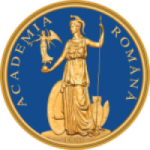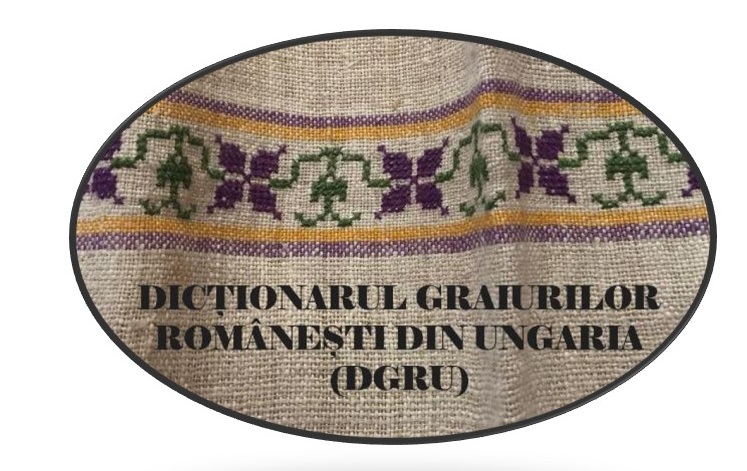Dicţionarul graiurilor româneşti din Ungaria (DGRU) has been a research topic, included in the plan of ”Iorgu Iordan–Alexandru Rosetti” Institute of Linguistics of the Romanian Academy, since 2017.
Within this research topic, two bilateral projects have been carried out by means of collaboration between The Romanian Academy, ”Iorgu Iordan–Alexandru Rosetti” Institute of Linguistics, Bucharest and The Hungarian Academy of Science in Budapest, HUN−REN The Hungarian Centre of Linguistic Research. The first one was Dicţionarul graiurilor româneşti din Ungaria [Dictionary of Regional Romanian Spoken in Hungary / A magyarországi román területi nyelvváltozatok szótára], 2018–2021 (PROJEKT 2017–55), having the researchers Ana Borbély (the project manager from the Hungarian part), Maria Marin (the project coordinator from the Romanian part), Iulia Mărgărit, Carmen-Ioana Radu and Daniela Răuţu as participants. The second one is Dicţionarul graiurilor româneşti din Ungaria 2 [Dictionary of Regional Romanian Spoken in Hungary 2 / A magyarországi román területi nyelvváltozatok szótára 2], 2022–2024, (PROJEKT NKM 2021-17) having the researchers Ana Borbély (the project manager from the Hungarian part), Maria Marin (the project coordinator from the Romanian part), Marinela Bota, Carmen-Ioana Radu and Daniela Răuţu as participants.
DGRU represents a novelty in the domain of lexicography, in general, and of dialectology, in particular, since it is one of the first studies of this kind, dedicated to some Romanian dialectal varieties that are used in an environment where another language is spoken. The study will comprise words from a series of localities with Romanian population from Hungary, population who has been continuously using Romanian as a means of communication (the villages Apateu/Körösszegapáti, Bedeu/Bedő, Săcal/Körösszakál) or who is still keeping, even if partially, the habit of using the Romanian language (Aletea/Elek, Bătania/Battonya, Chitighaz/Kétegyháza, Cenadul Unguresc/Magyarcsanád, Jula/Gyula, Micherechi/Méhkerék, Otlaca-Pustă/Pusztaottlaka, etc.). The study replenishes the image of the lexical repertory (with implications in phonetics, morphology and word formation) of the Daco-Romanian subdialects, in general, and of those from Transylvania, Crişana and/or Banat, in particular.
The study addresses both the specialists in different domains (dialectology, lexicography and lexicology, the history of Romanian language, sociolinguistics, ethnology and ethnography etc.), and those who are interested in aspects regarding the knowledge of the language, of customs and traditions from the research area.
The richness and variety of the material that is going to be collected from different sources (linguistic atlases, texts collections, monographies, studies and articles of dialectology, ethnology, folk, history) or that is going to be recorded during field work enforce the elaboration and publishing of this dictionary, which will be valued in the Dictionary-Thesaurus of Romanian language.
Collaboration between the two institutes offers the researchers the oportunity to produce an innovative work, dedicated to an unique dialectal variety spoken in the comunities with Romanian population from Hungary.

